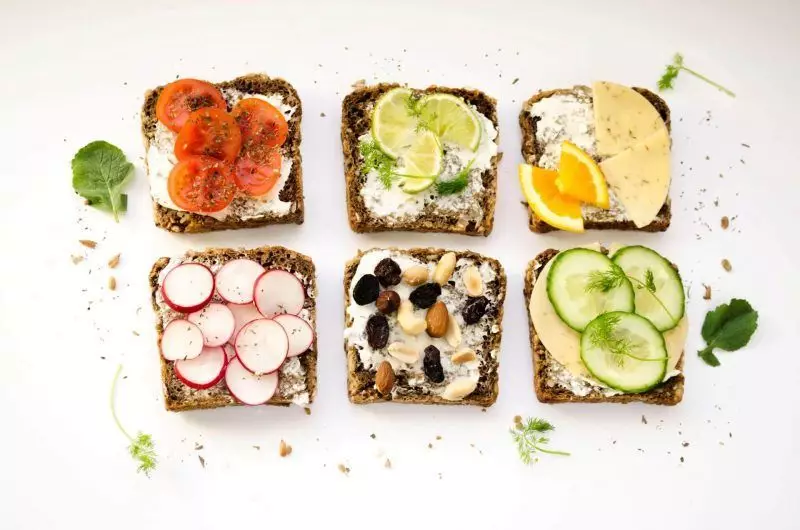
According to The US National Diabetes Statistics Report, about 34.5% of the adult US population (age 18 or above) have prediabetes. This health condition is often characterized with higher than normal blood sugar, increased/impaired insulin production, and impaired insulin sensitivity.
That being said, insulin resistance is a common prediabetic condition (affecting about 1 out of 5 American adults), which (without proper treatment plan) can lead to type 2 diabetes and significantly increase the risk of heart disease and stroke. Fortunately, according to the Diabetes Prevention Support Centre, insulin resistance is preventable, and most importantly- reversible! [1]
This article will guide you through scientifically backed-up lifestyle changes that may help you to naturally and holistically prevent insulin resistance (IR) or improve already existing IR.
But first, let’s start with what exactly IR is and how to recognise its symptoms.
Let’s get started!
Keep in mind that insulin resistance is a serious health condition, that requires medical attention, diagnosis, and treatment (even when using holistic treatment plan, it should be under your doctor’s supervision). That being said, this article does not encourage self-diagnosis, self-treatment, and lack of consultation with a healthcare provider.
What is insulin resistance?
To understand what IR is, first you should know the role of insulin in your body.
In short, insulin is a hormone produced by the pancreas that doesn’t only support proper fat and protein metabolism, but also allows the body cells to use glucose (sugar) from the blood and transform it into energy (for muscle development, organ functions, etc.) [2]
That being said, insufficient insulin production or impaired sensitivity of the body cells to insulin can negatively affect blood sugar levels in the long run (as the glucose is not efficiently used by the body and accumulates in the blood).
Under the influence of fat accumulation, poor dietary choices (like eating mostly carbs, foods high in sugar, processed foods, etc.) together with sedentary lifestyle, stress, and other factors [3], the body cells of IR patients become resistant to insulin (a.k.a. do not, or partially react to it). When that happens, the pancreas starts producing peak amounts of insulin to compensate for the resistance. [4]
How to recognize insulin resistance?
The symptoms of IR may vary across individuals, depending on the progression of this health condition. The most efficient way to recognize IR is to consult your healthcare provider and test yourself (usually blood test is necessary).
Yet, here are some of the most common symptoms that IR patients may experience [5] :
- Weight gain around the waist
- High LDL (bad cholesterol) and low HDL (good cholesterol)
- High triglyceride levels (types of fat in the blood)
- High blood sugar
- Increased (peak) insulin production
- Dark patches on skin (that weren’t there before)
Find out the ideal diet for insulin resistance! Check out our dietitian-approved food guide!

How to reverse insulin resistance?
There are various types of treatment plans for IR, using both traditional medicine and holistic approaches. It’s important to seek medical advice before deciding whether to adopt natural treatment or reaching to medicines (like Metformin [5]).
According to CDC, making the following lifestyle changes can effectively help you to become more insulin sensitive (and reverse IR): [6]
- Become more physically active (even low intensity workouts like stretching or going for a walk)
- Reduce your weight
- Make healthier dietary choices (see next section)
- Improve your sleep/ make sure to get high quality sleep
- Lower your daily stress
Besides, evidence suggests that the controlled intake of some natural supplements can improve your insulin sensitivity. [7] Those include:
Keep in mind that uncontrolled supplementation can be dangerous and may cause micronutrient toxicity. To ensure your safety, always follow the advice of your healthcare provider: dose, frequency of supplementing, etc.
What to eat with insulin resistance?
Eating the right foods (together with being more physically active) is key to improve insulin sensitivity, as diet plays a major role in causing, managing, and preventing this condition. [8]
As the goal for IR patients is weight loss, there is no universal IR diet (apart from being in a caloric deficit: eating less calories than you consume). [9]
That being said, many different diets may work (depending on how your body reacts to the specific diet). At the end of the day, many specialists recommend focusing on low carb, high fiber foods, rich in unsaturated fats (without consuming too much fats in total). [10] [11]
Below, you can find some examples of YES and NO foods for insulin resistance.
To get the most benefits from your IR diet, consult a registered dietitian or your healthcare provider.
Recommended foods for IR
- All vegetables (keeping in mind to eat starchy veggies like potatoes in moderation)
- Legumes
- Poultry
- Fish and seafood
- Citrus fruits and berries
- Whole grains (in moderation)
- Yogurt and kefir
- Eggs
- Olive oil
- Fish oil
Foods to avoid for IR
- Sweets
- Sugar
- Processed foods
- Fast food
- White bread
- Refined grains
- Fatty meat
- Red meat
- Milk
- Butter and coconut oil
- Fried foods (fatty foods in general)
- Fruit juice
- Fruits with high glycemic load (bananas, melon, etc.)
- Alcohol
The mentioned foods serve as examples and the foods lists do not intend to provide complete dietary plan.








